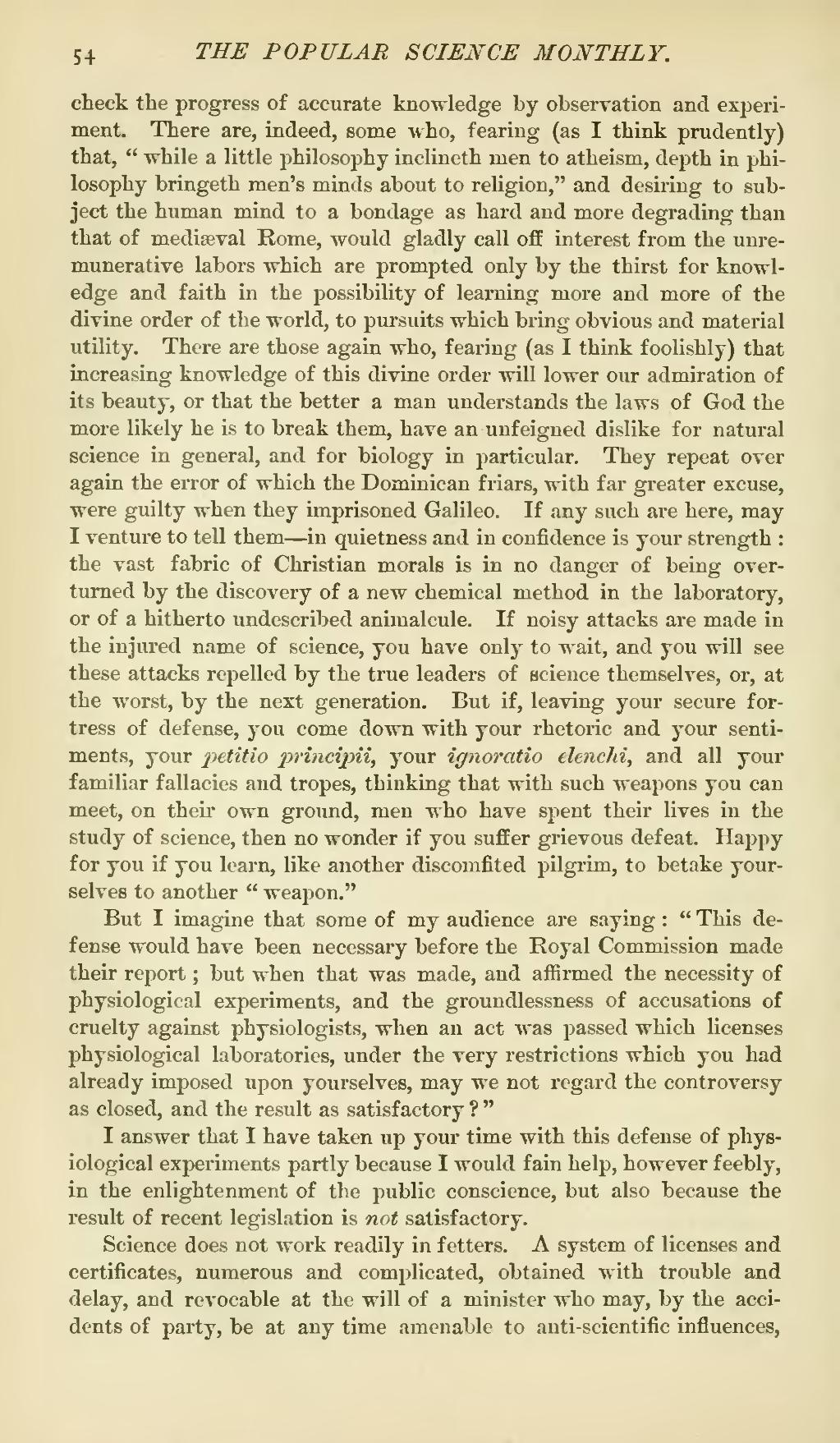check the progress of accurate knowledge by observation and experiment. There are, indeed, some who, fearing (as I think prudently) that, "while a little philosophy inclineth men to atheism, depth in philosophy bringeth men's minds about to religion," and desiring to subject the human mind to a bondage as hard and more degrading than that of mediæval Rome, would gladly call off interest from the unremunerative labors which are prompted only by the thirst for knowledge and faith in the possibility of learning more and more of the divine order of the world, to pursuits which bring obvious and material utility. There are those again who, fearing (as I think foolishly) that increasing knowledge of this divine order will lower our admiration of its beauty, or that the better a man understands the laws of God the more likely he is to break them, have an unfeigned dislike for natural science in general, and for biology in particular. They repeat over again the error of which the Dominican friars, with far greater excuse, were guilty when they imprisoned Galileo. If any such are here, may I venture to tell them—in quietness and in confidence is your strength: the vast fabric of Christian morals is in no danger of being overturned by the discovery of a new chemical method in the laboratory, or of a hitherto undescribed animalcule. If noisy attacks are made in the injured name of science, you have only to wait, and you will see these attacks repelled by the true leaders of science themselves, or, at the worst, by the next generation. But if, leaving your secure fortress of defense, you come down with your rhetoric and your sentiments, your petitio principii, your ignoratio elenchi, and all your familiar fallacies and tropes, thinking that with such weapons you can meet, on their own ground, men who have spent their lives in the study of science, then no wonder if you suffer grievous defeat. Happy for you if you learn, like another discomfited pilgrim, to betake yourselves to another "weapon."
But I imagine that some of my audience are saying: "This defense would have been necessary before the Royal Commission made their report; but when that was made, and affirmed the necessity of physiological experiments, and the groundlessness of accusations of cruelty against physiologists, when an act was passed which licenses physiological laboratories, under the very restrictions which you had already imposed upon yourselves, may we not regard the controversy as closed, and the result as satisfactory?"
I answer that I have taken up your time with this defense of physiological experiments partly because I would fain help, however feebly, in the enlightenment of the public conscience, but also because the result of recent legislation is not satisfactory.
Science does not work readily in fetters. A system of licenses and certificates, numerous and complicated, obtained with trouble and delay, and revocable at the will of a minister who may, by the accidents of party, be at any time amenable to anti-scientific influences,

